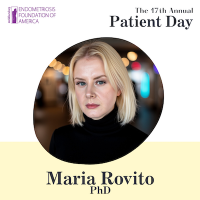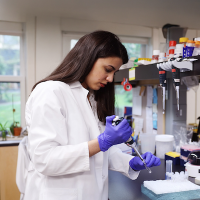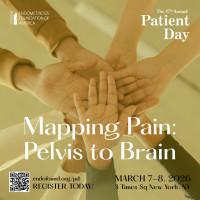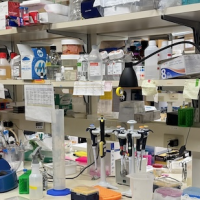
What are abnormal periods?
The first fundamental symptom of endometriosis, is abnormal periods. Abnormal periods can include the following symptoms which start before one’s cycle or with the onset of their period:
-
Painful menstrual cramping (dysmenorrhea) not relieved by NSAIDs/Ibuprofen. *It is important to note that not all patients with endometriosis have uterine cramping pain or heavy periods. Their symptoms may be elsewhere but still cyclical in nature*
-
Heavy menstrual flow (menorrhagia)
-
Nausea/Vomiting
-
Gassiness
-
Diarrhea
-
Painful bowel movements or urination
-
Chronic pelvic pain
-
Leg Pain (neuropathy)
-
Headaches or Migraines
-
Fatigue
If a patient experiences any of the above symptoms consistently during periods or in a cyclical nature during the month, they should alert their gynecologist.
Monthly vomiting, painful bowel movement, and excruciatingly painful pelvic and menstrual pain are normal during one’s period.
Regular vomiting, painful bowel movements, and abnormal pain during one’s period are not normal. Patients know their body best, and if they are experiencing abnormal pain, they should consult a gynecologist.
What is the distinction between abnormal periods and painful periods?
Painful menstrual cramping correlates with this primary symptom of abnormal periods. The reason why they are listed as two separate symptoms is that painful periods can include more than just painful menstrual cramping. On the other hand, abnormal periods are not just limited to painful periods. It is possible for an individual to experience an abnormal period and endometriosis, without the period being particularly painful as a patient can experience any of the other following symptoms listed above.
Is endometriosis defined by painful periods?
Simply having painful periods does not mean that a person will have the disease. For example, a thirteen-year-old girl with painful periods would not be diagnosed with endometriosis based solely on this symptom, but rather, such a complaint should certainly prompt a physician to look for other possible symptoms that could confirm that the disease is materializing. Thus, if a person is suffering from abnormally painful periods, this will not mean that she has endometriosis, but rather it should be investigated further. If an individual is missing school or work due to pain/symptoms or if they are taking multiple doses of Tylenol/ibuprofen and not getting any relief, this is not normal.
Treatment options for managing abnormal periods
Managing abnormal periods due to endometriosis is difficult. They can feel debilitating, emotionally taxing, and have a great impact on day-to-day activities.
-
Non-steroidal anti-inflammatory drugs (NSAIDs): NSAIDs relieve pain by reducing inflammation. While the exact cause of endometriosis pain is not fully understood, researchers have often characterized it as a “disease of inflammation.” Thus by reducing inflammation through NSAIDs, particularly during one’s menstrual periods, endometriosis patients have been able to find some relief for their symptoms.
-
Hormonal therapy: Another characteristic that is believed to define pain caused by endometriosis, is the role of sex hormones, particularly estrogen. The menstrual cycle is driven by the fluctuation of sex hormones, estrogen and progesterone. Because endometriosis is a disease of menstruation, individuals often seek such relief options as birth control as a way to manage this hormone fluctuation, and in turn, relieve their pain.
-
Holistic approach (Diet modification/alternative therapies like acupuncture): While these may not cure the disease, they can certainly help the pain or bowel symptoms often associated with the disease.
Keep in mind, however, the above medications or therapies are for treating endometriosis symptoms and not the disease itself. Excision surgery is the only definitive way to remove endometriosis in the body. Also, what may work for one person, may not for another. Thus it is important to find the treatment option that is right for each particular case. Even with excision surgery, the best therapies for endometriosis patients include a complete approach to wellness.
The taboos surrounding abnormal periods
A major hurdle in diagnosing endometriosis early is the taboo of talking openly about periods. Many patients with exceedingly painful periods beginning with their very first one, often do not say anything when the pain initially starts as they are too embarrassed. They do not realize the pain is abnormal or are shunned by their loved ones and doctors when they do have the courage to say something. Their loved ones or doctors may tell them their pain is normal - and they may spend years in silence dealing with it.
On average, it takes 7-10 years from symptom onset for an accurate diagnosis of endometriosis to be made. This stems from a lack of knowledge in the general public and even in the medical community. The taboos which prevent open discussion about menstruation and menstrual pain greatly hinder proper endometriosis diagnosis and treatment. Chronic and debilitating pain, vomiting, bloating, and abnormal bowel movements during menstruation are not normal. If a patient is experiencing any of these symptoms during menstruation, they should consult their gynecologist. If their gynecologist does not listen to their symptoms or discounts them, they should seek care with an endometriosis specialist.
How to overcome these taboos
Endometriosis is a disorder that not only affects those with the disease but also loved ones surrounding the individual. For these reasons, it is crucial to educate all adolescents about the menstrual period and break the stigma surrounding menstruation. Everyone should be taught about the menstrual cycle and the physiology behind it. Menstruation and the potential abnormalities with it should be taught in sex education.

Adolescents should be taught what to expect when they get their first period and be provided with information on the best ways to handle it, physically, emotionally, and socially. They should be invited to ask questions, and they should expect to be able to get the answers they need without fear of embarrassment. They should be encouraged to track their symptoms and to discuss them with a gynecologist who will listen. The stigma surrounding periods cannot be broken unless every adolescent is part of the conversation. Attitudes toward periods, which can include unflattering jokes or simply trying to avoid the subject altogether, are a major cause of the stigma, and education can help erase that. The adults who educate about this topic can be anyone, including mothers, fathers, doctors, or school nurses. As is the case in most situations, the best education and awareness will come from those who have the most knowledge, experience, and understanding.
References
-
T Zhu et al., “Estrogen is an important mediator of mast cell activation in ovarian endometriomas.” Reproduction, National Institutes of Health (NIH), Pubmed.gov. October 26th, 2017 https://www.endonews.com/increased-period-pain-in-endometriosis-is-linked-to-estrogen
- Endometriosis and heavy menstruation, Drseckin.com







